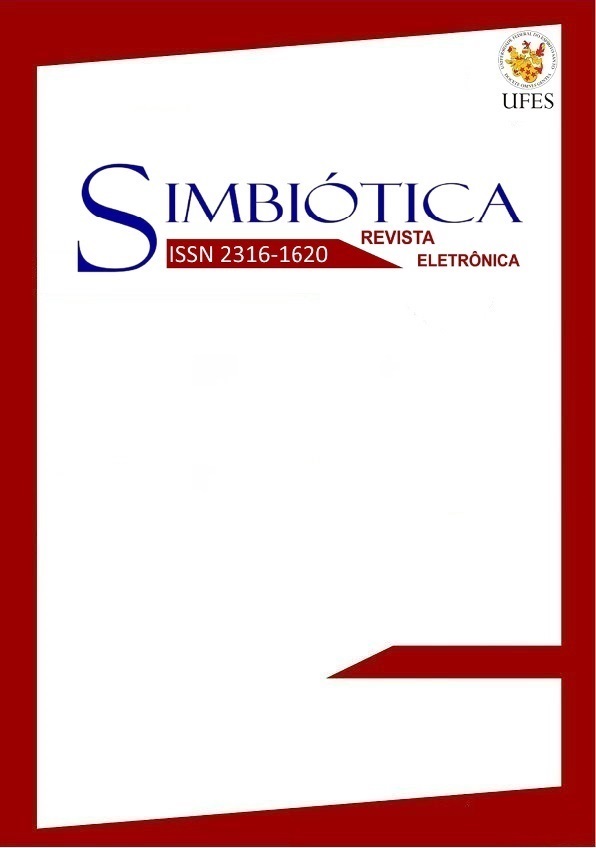The liberal democracy crisis and the leftist populist alternative
DOI:
https://doi.org/10.47456/simbitica.v6i2.28401Abstract
Este texto tem dois objetivos principais. O primeiro é refletir sobre a crise das democracias liberais. O segundo é indicar o populismo de esquerda como alternativa política para se pensar a radicalização da democracia. Para atingir tais objetivos, o artigo está dividido em quatro partes. Primeiramente, discuto a crise dos regimes representativos e seus dois perigos: as alternativas autoritárias e a posição conservadora. A seguir, discuto os problemas que envolvem considerar o populismo como alternativa política à democracia liberal. Na terceira parte, apresento uma noção mínima de populismo, em grande medida inspirada em Laclau (2005), a qual fornece os elementos necessários para se compreender a especificidade do fenômeno. Na última seção, reflito como o populismo de esquerda pode ser uma alternativa política não somente aos regimes liberais, mas também à própria radicalização da democracia.
Palavras-chave: Populismo; Democracia Liberal; Democracia Radical; Ernesto Laclau.
Abstract
This text has two main objectives. The first is to reflect on the crisis of liberal democracies. The second is to point out the left populism as a political alternative to think about the radicalization of democracy. To achieve these goals, the article is divided into four parts. Firstly, I discuss the crisis of the representative regimes and its two dangers: the authoritarian alternatives and the conservative position. Next, I focus on the problems of considering populism as a political alternative to liberal democracy. In the third part, I present a minimal notion of populism, mostly inspired by Laclau (2005), which provides the necessary elements to understand the specificity of the phenomenon. In the last section, I reflect on how the left populism can be a political alternative not only to the liberal regimes but also to the very democracy radicalization.
Key-words: Populism; Liberal Democracy; Radical Democracy; Ernesto Laclau.
Resumem
Este texto tiene dos objetivos principales. El primero es reflexionar sobre la crisis de las democracias liberales. El segundo es indicar el populismo de izquierda como una alternativa política para pensar en la radicalización de la democracia. Para lograr estos objetivos, el artículo se divide en cuatro partes. Primero, analizo la crisis de los regímenes representativos y sus dos peligros: las alternativas autoritarias y la posición conservadora. A continuación, analizo los problemas de considerar el populismo como una alternativa política a la democracia liberal. En la tercera parte, presento una noción mínima de populismo, inspirada en gran medida por Laclau (2005), que proporciona los elementos necesarios para comprender la especificidad del fenómeno. En la última sección, reflexiono sobre cómo el populismo de izquierda puede ser una alternativa política no solo a los regímenes liberales sino también a la radicalización de la democracia.
Palabras-clave: Populismo; Democracia Liberal; Democracia Radical; Ernesto Laclau.
Downloads
Downloads
Published
How to Cite
Issue
Section
License
Copyright (c) 2020 Daniel de Mendonça

This work is licensed under a Creative Commons Attribution-NonCommercial-NoDerivatives 4.0 International License.
Autores que publicam nesta revista concordam com os seguintes termos:
a. Autores mantém os direitos autorais e concedem à revista o direito de primeira publicação, com o trabalho simultaneamente licenciado sob a Creative Commons - Atribuição-NãoComercial 4.0 Internacional.
b. Compartilhar - copiar e distribuir o material em qualquer meio ou formato.
Adaptar - remix, transformar e construir sobre o material para qualquer finalidade, inclusive comercial.
c. Autores têm autorização para assumir contratos adicionais separadamente, para distribuição não-exclusiva da versão do trabalho publicada nesta revista (ex.: publicar em repositório institucional ou como capítulo de livro), com reconhecimento de autoria e publicação inicial nesta revista.
d. Autores têm permissão e são estimulados a publicar e distribuir seu trabalho online (ex.: em repositórios institucionais ou na sua página pessoal) a qualquer ponto antes ou durante o processo editorial, já que isso pode gerar alterações produtivas, bem como aumentar o impacto e a citação do trabalho publicado (Veja O Efeito do Acesso Livre).
Authors who publish in this journal agree to the following terms:
a. Authors retain the copyright and grant the magazine the right of first publication, with work simultaneously licensed under the CCreative Commons - Atribuição-NãoComercial 4.0 Internacional.
b. Share - copy and distribute the material in any medium or format.
Adapt - remix, transform and build on the material for any purpose, including commercial.
c. Authors are authorized to take additional contracts separately, for non-exclusive distribution of the version of the work published in this journal (eg, publish in institutional repository or as a book chapter), with acknowledgment of authorship and initial publication in this journal.
d. Authors are allowed and encouraged to publish and distribute their work online (eg.: in institutional repositories or on their personal page) at any point before or during the editorial process, as this can generate productive changes as well as increase the impact and the citation of the published work (See The Effect of Free Access).














